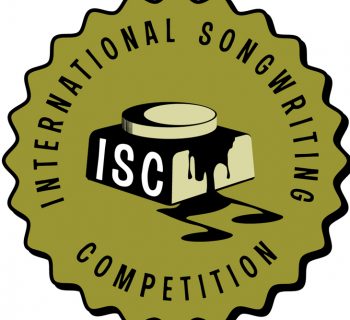Rock & Roll Renaissance Man is a somewhat over-used term, but if you're going to apply it to anyone—male or female—it may as well be Sting. Since becoming a bona fide rock star with the Police during the late ‘70s, the man born Gordon Sumner, a proud son of northeast England near the coast, has cast his creative net far and wide. He's experimented with jazz, classical, Middle Eastern, African, South American and even Renaissance era lute music in addition to pop and rock.
He's been an actor on both stage and screen, and in 2013 he launched his own stage musical, The Last Ship, which chronicles the boatyard culture of Newcastle, England, near Sting's home town. And as an activist he's thrown his weight behind all manners of causes, from the political (Amnesty International) to the social (Band AID) to the environmental, the latter via his own Rainforest Foundation Fund that Sting supports with an annual concert gala in New York. The artist’s efforts have not gone unrecognized, of course; in addition to massive sales he's also won or shared in 16 Grammys, an Emmy Award and a Polar Music Prize and has been nominated for four Academy Awards for movie contributions.
He's been inducted into the Rock & Roll Hall of Fame, the Songwriters Hall of Fame and the Hollywood Walk of Fame, and he's received a Kennedy Center Honor in the U.S. and a CBE award in Britain from Queen Elizabeth II. The beat goes on, too... Last Fall, Sting released 57th & 9th, his 12th studio album and most straightforward rock/pop set since 2003's Sacred Love. And he'll be touring to support it, likely into 2018.
Music Connection: 57th & 9th has been trumpeted as your return to rock––at least on album. What led you back?
Sting: Well, I don't really know what people are on about saying it's my first pop-rock album in however many years. I thought that was just a record company kind of marketing tool, because for me it's just a record. Rock & roll or whatever, pop music, is just part of my DNA, and every time I make a record, to a certain extent less or more it's rock & roll and pop. So I've always been bemused by the question when it comes up. I say, "Really? It's just a Sting record."
MC: You do tend to change directions from project to project, however. Is there a reactive quality to your creative approach? Is each project a reaction in some way to what came before it?
Sting: There was no overriding concept, which I suppose is the biggest difference. With The Last Ship it was meant to be one thing, a cycle of songs about one subject, or at least one community, and this is just me going in the studio and having fun with people I know and love, musicians I trust and who trust me and saying, "Let's just play musical ping-pong and see what kind of things transpire." No more than that. I think it's a traditional record in that sense. I think the concept album was something that had its day, but originally bands would go in the studio and have the privilege of making a record of their songs, and there was no sort of overarching arc, if you like. It was just having fun. This record's no different.
MC: Were some of these songs around for a while, waiting for their moment while you were working on The Last Ship?
Sting: Not really. Most of it was conjured up there and then, and I think having that pressure to make a record in a short amount of time was a helpful one. Normally I have a very open-ended remit––It'll be released when I'm finished or it'll be written when I feel like writing. This one I said, "Okay, we're gonna go in the studio on this day and we'll make a record by this day, and we'll have it on the street by Christmas." I enjoyed that, actually, even though it hasn't been my method in a number of years.
MC: What was the allure of doing it that way?
Sting: My feeling about creativity is that it is a very, very mysterious and very difficult-to-catch animal, and you're hunting for it all of the time so you have to change your methods the whole time because it does, too. You have to trick it, somehow, or trick yourself into finding it. So approaching it from a different angle a surprising angle, a different method than you've used before is always a benefit.
MC: How does the songwriting method change in that kind of environment?
Sting: I was writing subconsciously, first of all, improvising the music with the boys and then taking that music home and asking it to tell me a story. But of course what's going on in the world, what's going on in MY world or my personally history or so has an effect. So in a way you open yourself up to this kind of automatic writing, just focalizing, and an idea will come into your head, a phrase which you hadn't really planned on or a theme which you hadn't really planned on.
MC: Talk about that external influence of current events.
Sting: Well, you read the papers every day, what's going down in the world, so it's not surprising that some of those themes or some of those elements come through—lo and behold, some of them are connected, even! You may start off with the idea of resisting the concept album, but then you end up with concept, or connective tissue, by accident.













